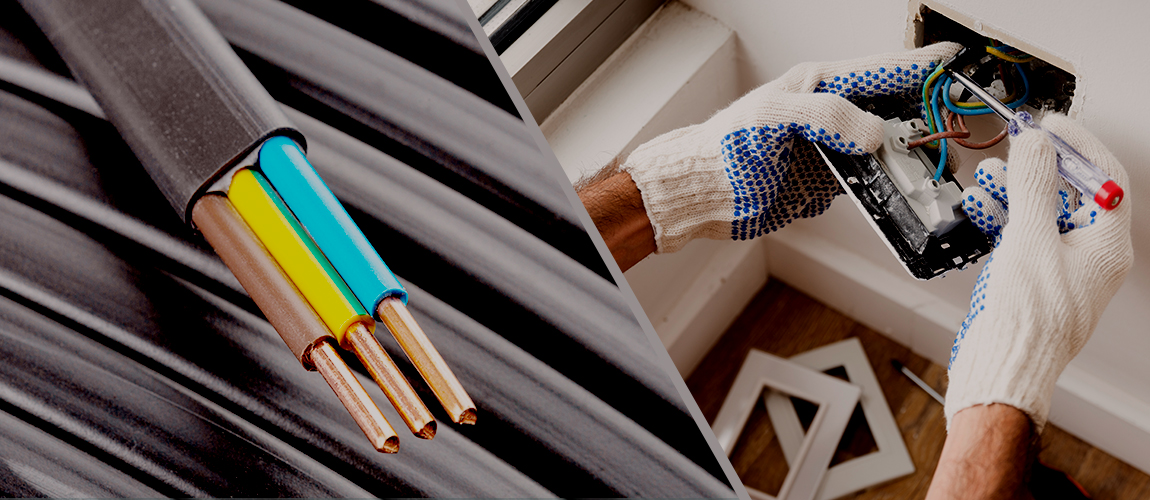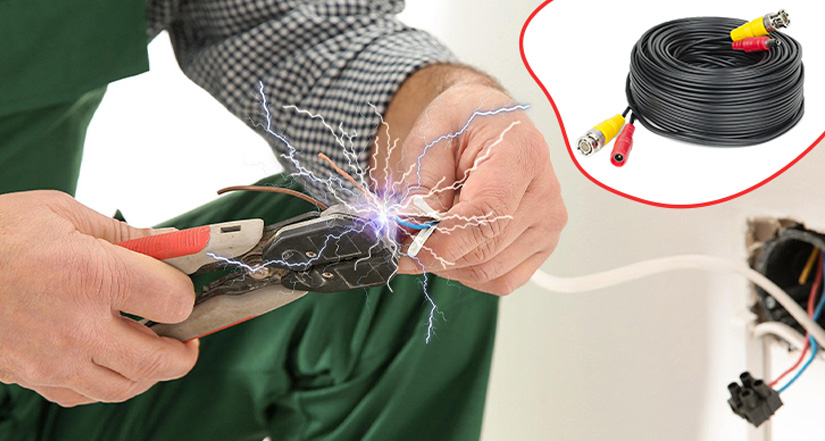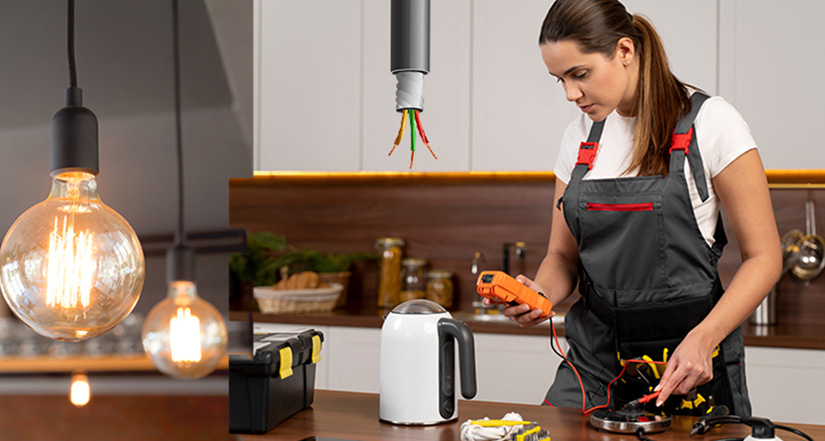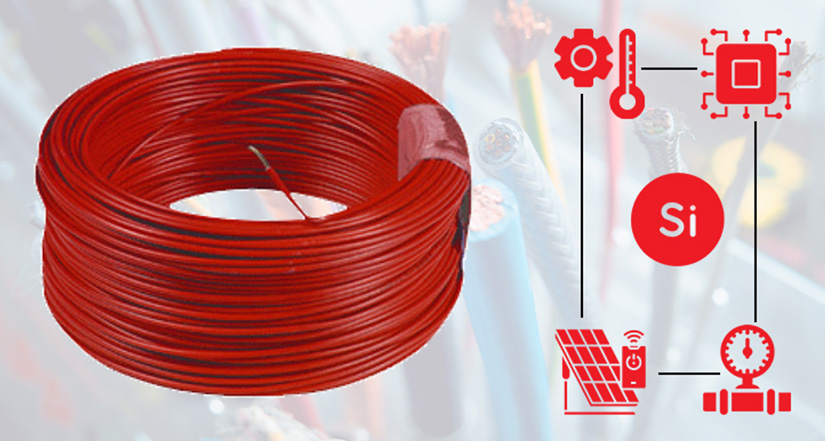
Rubber Insulated Cables - Their Classification and Application
The use of natural rubber as an insulator for wires and cables goes a long way back. The invention of PVC and PE dominated the wire and cable industry for quite some time. But the formation of rubber compounds and synthetic rubber, giving rubber cables excellent chemical, mechanical and other properties, has regained its popularity.
Nowadays, rubber cables come in various designs, insulated and sheathed with several rubber compounds like silicone, EPR, SBR, etc. Rubber-insulated wires and cables are suitable for household appliances, electrical equipment, heavy machinery, generators, excavators, elevators, mining, marine, and many more.
Rubber Cables and Reasons to Choose Rubber in Electrical Wires and Cables

Rubber cables use rubber as an insulator or sheathing to improve cable insulation properties and for better chemical, physical, and mechanical strength. Instead of natural rubber, rubbers are cross-linked or thermoset by the vulcanization process. And the addition of various additives, including fillers, vulcanizing agents, accelerators, antioxidants, and antiozonants, helps change the rubber properties significantly.
Rubber compounds used for cable and wire insulation are natural rubber, Styrene-Butadiene Rubber (SBR), Hypalon, Butyl, Ethylene Propylene Rubber, Silicone, Polychloroprene, Cholorosulphonated Polyethylene (PCP), and Fluorocarbon.
Reasons to Use Rubber in Electrical Wires and Cables
Rubber is a durable material and offers a high level of water and abrasion resistance. Rubber insulation or sheathing makes wires and cables physically strong and suitable for adverse environmental and industrial conditions. Rubber-insulated cables can withstand their surroundings and last longer. They offer excellent temperature range flexibility. Rubber is a powerful insulator, and rubber cables protect the electrical system and surrounding from potential conduction and shock hazard.
Why Rubber-insulated Cables are Used
The design of Rubber cables depends on the electrical application used for industrial, commercial, or domestic purposes.
Specifications of Rubber Cable
Rubber cables use technologically advanced polymers from EPDM, CSP, CPE, PCP, and other halogen-free, non-toxic, heat, oil, and fire-resistant compounds to manufacture the specific cable designs. The specifications of rubber-insulated cables are
Conductor
The cable uses 99.99% stranded oxygen-free copper, tin-plated copper, and copper-coated aluminum. They must comply with the requirement of IS 8130-1984.
 Separator Tape
Separator Tape
A suitable material tape can get applied over the conductor.
 Insulation
Insulation
The rubber insulated cable range is 0GA, 2GA, 4GA, 6GA, 8GA, 10GA, 12GA, 14GA, 15GA, 16GA, 18GA, 20GA and ultra classic strands.
 Core Identification
Core Identification
The core identification of rubber cables is colored insulation, Nos. PE tape, color-proofed tape, Nos, printing, etc.
 Fillers
Fillers
Natural or synthetic fibers or elastomers used as fillers depend on the operating temperature of the cable and the insulating material.
 Sheath
Sheath
The cable can use the general service sheath of Type SE1/SE2 and the heavy-duty sheath of Type SE3/SE4 in compliance with IS 6380-1984.
 Temperature Range
Temperature Range
These cables have an extreme temperature range of - 14 degree Celsius to 105 degree Celsius.
Types of Rubber Cables
Various types of rubber cables manufactured and used across industries are
 Flat Rubber Cable
Flat Rubber Cable
Flat rubber cables consist of electrical conductors, signals, and power encasing in a compact design and a flat profile. These cables reduce the layers of extra fillers and shielding found in conventional round cables, offering less space and weight.
 Round Rubber Cables
Round Rubber Cables
Rubber round cables come in 3 or 4 cores, consisting of copper conductor, EPDM rubber insulation, filler, and NBR synthetic rubber outer sheath.
 Rubber Reeling Cables
Rubber Reeling Cables
Rubber Reeling cables are electrical power cables designed for mobile applications such as large excavators, draglines, stackers, and reclaimers.
 Heavy-duty Rubber Cables
Heavy-duty Rubber Cables
Heavy-duty rubber cables are suitable for generators, heavy-machinery, portable power tools, etc. They are available in single to multi-core and are flexible for constricted spaces with sharp and complex bends. These cables can withstand greater mechanical external force.
 Welding Cables
Welding Cables
Rubber welding cables have more resistant insulation and are suitable for wet environments. They perform in heavy-duty and high-stress level equipment and are resistant to ozone and weather.
A few other rubber cables included in the list are rubber-sheathed optical fiber, medium-duty cables, low-duty cables, and high-stress cables.
Application of Rubber Cables Across Industries

The use of rubber cables and wires across industries and residences ranges from electrical equipment, motor, and electrical appliance to mine and marine.

Rubber insulated wire is suitable for electrical and lighting equipment, with AC rated voltage of 500 volts and a conductive core long-term working temperature of 65 degrees.

General rubber flexible cable connects household appliances, power tools, and various mobile equipment and power lines.

The W-type derives cables are resistant to weather and oil resistance and suitable for outdoor or oil contact occasions.

Mine rubber-sheathed flexible cable is suitable for mining underground mobile electrical equipment and mining machinery. These cables are soft and resistant to bending and have a certain degree of mechanical strength and ozone resistance. They can operate at a temperature of 65 degrees Celsius; for a longer time.

Elevator cables maximize the operating efficiency of elevators. They provide overall electrical control with long suspension lengths and mechanical stress.

Rubber-insulated Marine power cables are suitable for dynamic, lightning, and general control devices in ships and floating buildings. These cables are anti-Radio Interference (RI) and Magnetic Interference (MI) with a certain degree of mechanical strength and heat, oil, and non-flame performance.
How Rubber Cables Perform Compared to Other Alternatives

We can distinguish rubber cables based on their specifications that define their performance for several electrical and environmental situations. In comparison to ordinary cables, rubber cables are soft and flexible. Therefore, rubber cables are preferable for the connection line of motor and electric appliance as it requires soft and heat-resistant wiring.
We can use rubber cables for a range of temperatures, and silicone-insulated cables are rated up to 180 degrees Celsius. Vulcanized rubber cables have better heat deformation than PVC or other cables.
A few other benefits of Rubber cables that make it preferable for various applications are as follows.
 Maintains Circuit Integrity
Maintains Circuit Integrity
Rubber-insulated cables like silicone cables maintain circuit integrity in a fire event because of their extreme fire-resistant properties.
 Thermal Resistance
Thermal Resistance
Rubber cables have high thermal resistance and can withstand high temperatures and even low temperatures. For example, industrial-grade silicon wire or EPR can withstand as much as +300°C and as low as -90°C.
 Compression Resistance
Compression Resistance
Ordinary cables, when subjected to high pressure, change their shape permanently. But rubber cables maintain their original form even after prolonged pressure.
 Clean Mineral
Clean Mineral
Rubber compound such as silicone is one of the greenest rubber materials and belong to the inert polymer category, making them a non-reactive chemical. Silicone rubber cables in the food industry encounter food and beverages without contamination.
 Suitable for Outdoor
Suitable for Outdoor
Rubber cables are suitable for outdoor applications and withstand extreme environmental conditions. We can use silicone cables on rooftops for solar applications.
Rubber Cables - Solution for a Variety of Purposes
Rubber cables bring excellent chemical, physical, and mechanical properties, including heat resistance, flexibility, and fire resistivity. Gloster Cables, a leading wires and cable manufacturer, offers different rubber cables for various applications such as reeling/unreeling, mining, welding, battery leads, high mast lighting, and elevator control. The cables manufactured at Gloster follow ISO-certified processes and stringent quality testing to ensure their safety, longevity, and performance.
CONTACT US